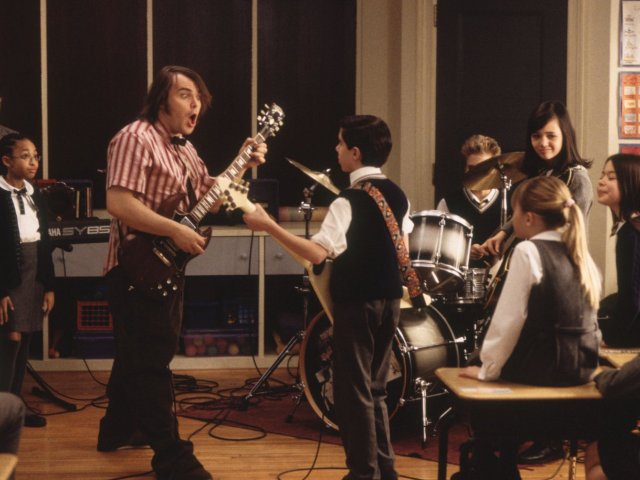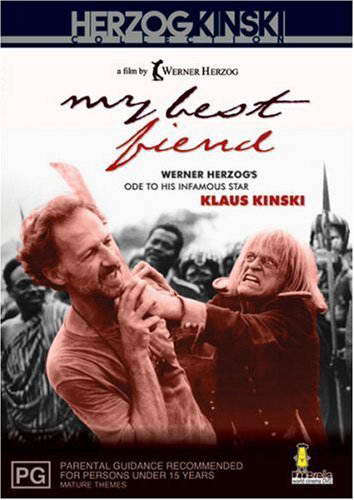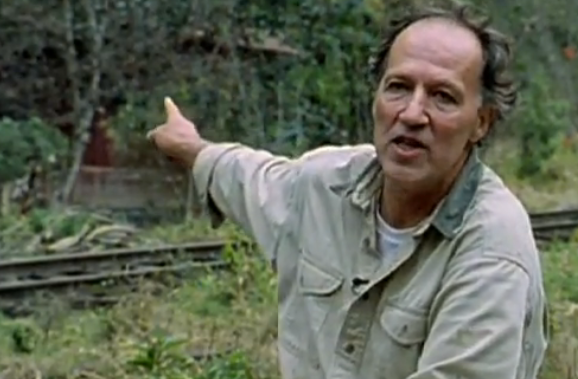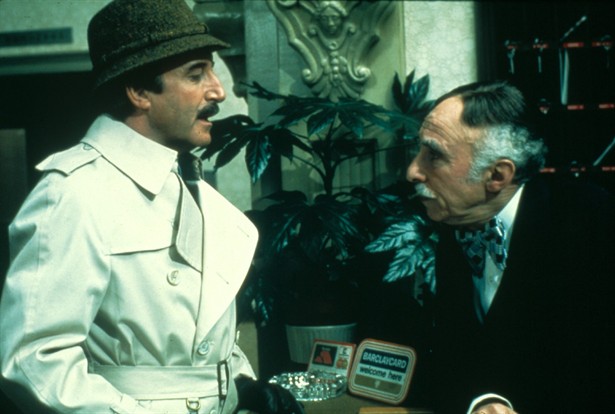From the Chicago Reader (October 3, 2003). — J.R.

Broadly speaking, this is Richard Linklater’s French Cancan — that is to say, a humanist’s joyful exploration of the musical in which the actors’ personalities resonate as much as the characters they play. Or maybe it’s what Jean Renoir might have come up with if he’d remade Don’t Knock the Rock and cast 12-year-olds as the musicians. Though this seems like a personal film, Linklater was hired to direct a cannily commercial script by Mike White, about a rock ‘n’ roll loser (Jack Black) who, fired from his job and his band, impersonates his wimpy substitute-teacher roommate (White) to land a teaching position at an upscale elementary school. This infantile character hasn’t got a thought in his head except for rock music, but somehow he becomes a model teacher, and through stealth and sheer perseverance he turns his fifth-grade class into an inspired gang of rockers. The kids, all real musicians performing, are wonderful, and so is Black; Joan Cusack is both charming and funny as the principal. 108 min. Century 12 and CineArts 6, Chatham 14, City North 14, Crown Village 18, Ford City, Gardens 1-6, Gardens 7-13, Lawndale, Lincoln Village, Norridge, North Riverside, 600 N. Read more
From the November-December 1976 Film Comment and exhumed now mainly as a telling time capsule of this period in the world of English film criticism. I’m still indebted to Laura Mulvey for introducing me to Zoo, or Letters Not About Love in her own list, which has subsequently become a touchstone for me.
For illustrations, I’ve selected the first film cited in each list whenever possible, even when there’s no particular significance to the order (when I couldn’t come up with one for The Nightcleaners, at least until Ehsan Khoshbakht — see below — furnished me with production stills or framegrabs; I accorded the late Claire Johnston two others)….Because of a scanning error and oversight, I originally had to omit two entries, those of David Pirie and Paul Willemen, which are now included. In the remaining 27, I’ve corrected a few typos for the first time, and accidentally introduced a few others, but thanks to the generous efforts of my good friend and best proofreader, Ehsan Khoshbakht, on December 4, 2014 (as well as Adrian Martin three days later, who caught a few more glitches), these are now corrected, and five additional illustrations (again, courtesy of Ehsan) have been added. Read more
From the Chicago Reader (February 11, 2000). — J.R.

My Best Fiend
Rating * Has redeeming facet
Directed and written by Werner Herzog.

What’s the difference between artistry and bravado? This isn’t a question I generally feel inclined to ask, but I’m compelled by the work of Werner Herzog, who scrambles the two until it’s difficult to tell which is which. My Best Fiend — Herzog’s documentary feature about his tumultuous collaborations with Klaus Kinski, the mad actor with whom he made some of his most notable films — also compels questions about Kinski’s bravado and artistry, and suggests that it might not always be easy to distinguish his from Herzog’s.

One might call My Best Fiend, which is playing this week at Facets, the art-movie equivalent of writer-director Blake Edwards’s Trail of the Pink Panther. Edwards and Peter Sellers reportedly were at each other’s throats throughout their many collaborations on Pink Panther comedies — largely, it appears, because of Sellers’s hyperbolically neurotic behavior. Herzog and Kinski had a similarly volatile relationship, which ended only after Kinski died, in 1991. Herzog got his revenge by releasing outtakes of his difficult star, much as Edwards continued to fiddle around with unreleased footage of Sellers as Inspector Clouseau in Trail of the Pink Panther. Read more




